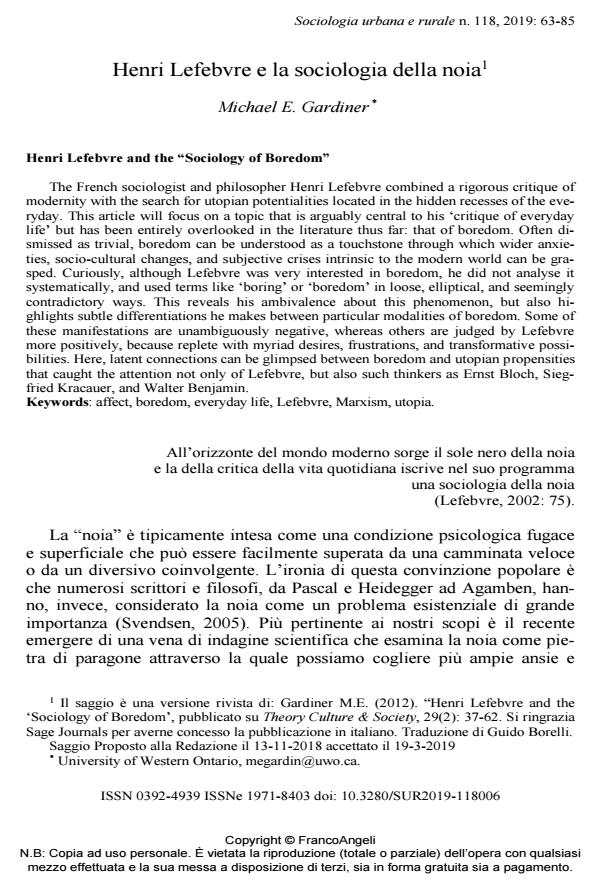Henri Lefebvre and the "Sociology of Boredom"
Journal title SOCIOLOGIA URBANA E RURALE
Author/s Michael E. Gardiner
Publishing Year 2019 Issue 2019/118
Language Italian Pages 23 P. 63-85 File size 500 KB
DOI 10.3280/SUR2019-118006
DOI is like a bar code for intellectual property: to have more infomation
click here
Below, you can see the article first page
If you want to buy this article in PDF format, you can do it, following the instructions to buy download credits

FrancoAngeli is member of Publishers International Linking Association, Inc (PILA), a not-for-profit association which run the CrossRef service enabling links to and from online scholarly content.
The French sociologist and philosopher Henri Lefebvre combined a rigorous critique of modernity with the search for utopian potentialities located in the hidden recesses of the every-day. This article will focus on a topic that is arguably central to his ‘critique of everyday life’ but has been entirely overlooked in the literature thus far: that of boredom. Often dismissed as trivial, boredom can be understood as a touchstone through which wider anxieties, socio-cultural changes, and subjective crises intrinsic to the modern world can be grasped. Cu-riously, although Lefebvre was very interested in boredom, he did not analyse it systematical-ly, and used terms like ‘boring’ or ‘boredom’ in loose, elliptical, and seemingly contradictory ways. This reveals his ambivalence about this phenomenon, but also highlights subtle diffe-rentiations he makes between particular modalities of boredom. Some of these manifestations are unambiguously negative, whereas others are judged by Lefebvre more positively, because replete with myriad desires, frustrations, and transformative possibilities. Here, latent connec-tions can be glimpsed between boredom and utopian propensities that caught the attention not only of Lefebvre, but also such thinkers as Ernst Bloch, Siegfried Kracauer, and Walter Ben-jamin.
Keywords: Affect, boredom, everyday life, Lefebvre, Marxism, utopia.
Michael E. Gardiner, Henri Lefebvre e la sociologia della noia in "SOCIOLOGIA URBANA E RURALE" 118/2019, pp 63-85, DOI: 10.3280/SUR2019-118006